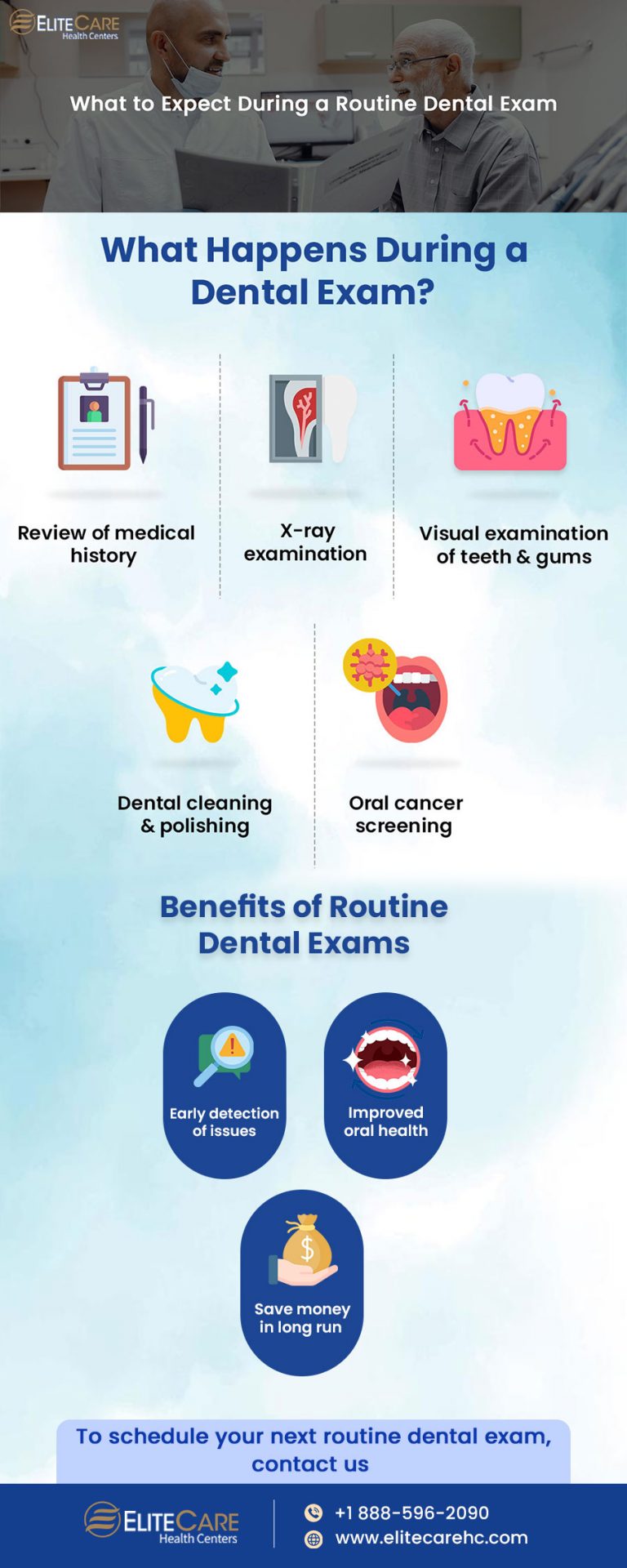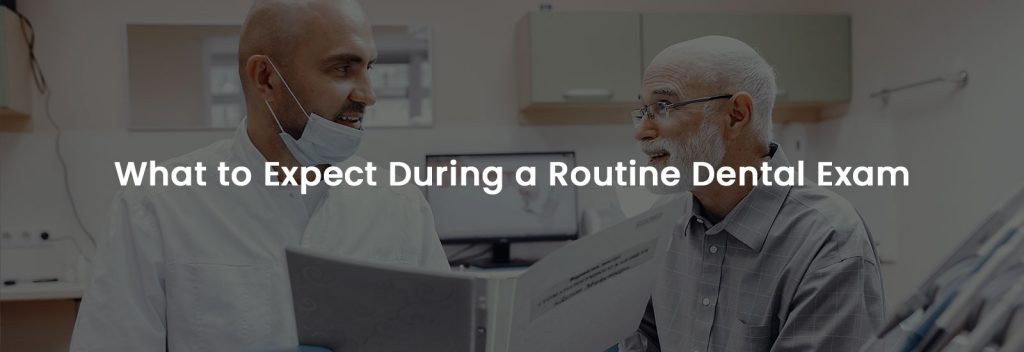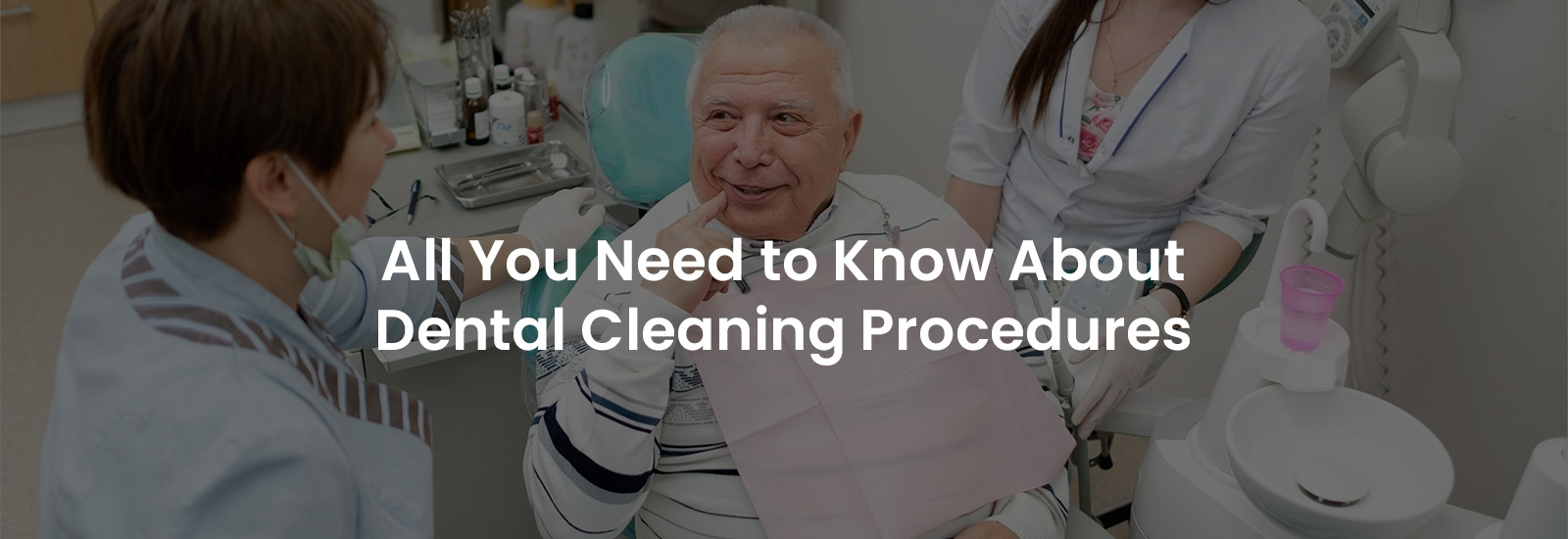
Over time, it becomes easier for seniors to neglect their oral health or miss their dental appointments. But maintaining dental health is as important as maintaining physical and mental health. Hence, it is crucial to schedule routine dental exams for a comprehensive evaluation of a person’s oral health. A routine dental exam typically includes a thorough examination of the teeth, and gums, as well as cleaning and polishing of the teeth.
It is recommended* that adults have a routine dental checkup at least once per year. However, the frequency of dental exams will depend on the individual’s oral health needs and risk of developing problems. Some people may need dental exams more frequently, such as every six months, if they have a high risk of developing oral health problems.
Read More: 10 ways of good oral hygiene for seniors
What Happens During a Dental Exam
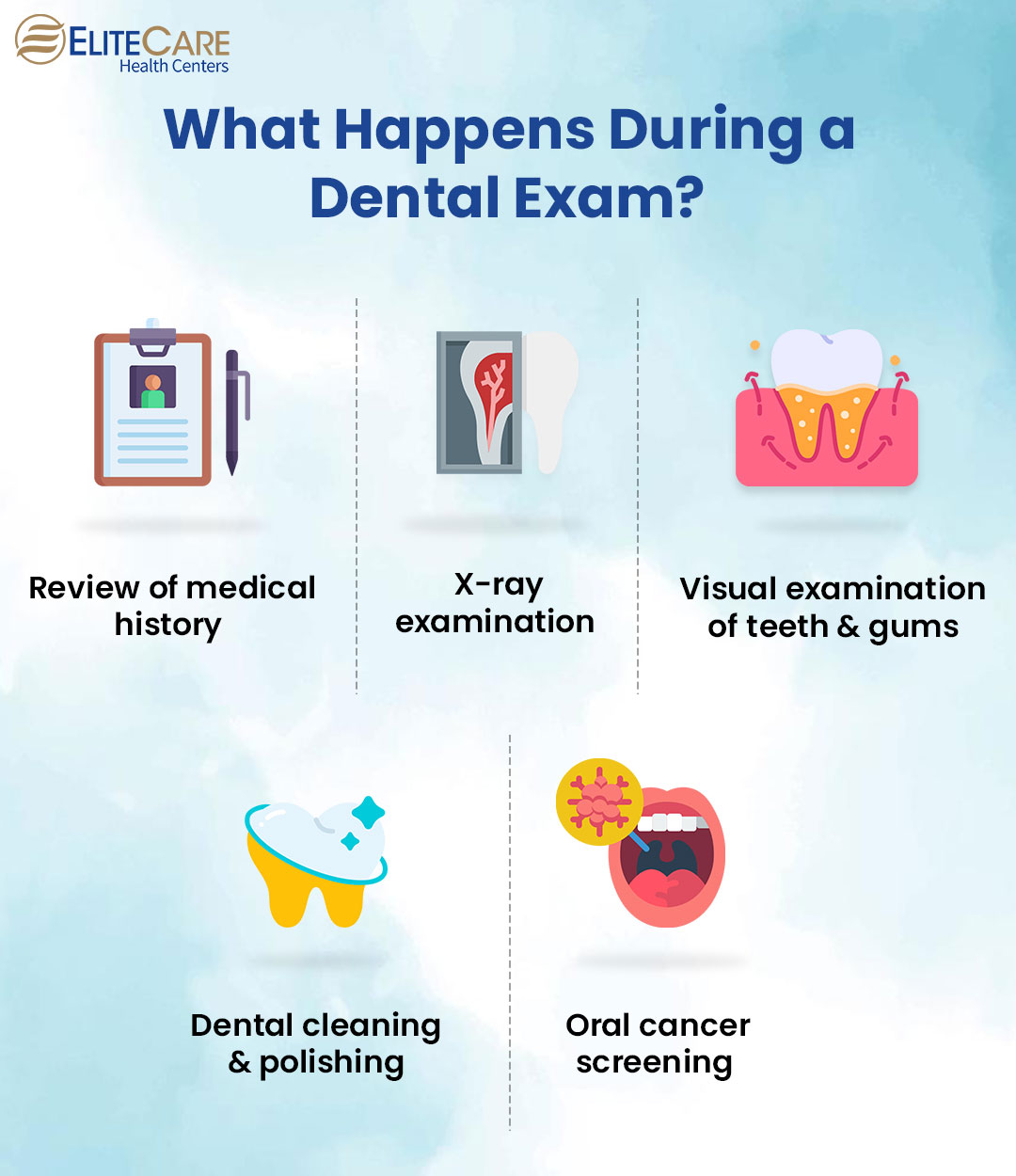
1. Initial review of medical history
During a dental checkup, the dentist typically asks and evaluates the medical history of a patient and any medications they are currently taking. It is critical because some medications can cause dry mouth and increase the risk of tooth decay and gum disease. By reviewing a senior’s medical history, the dentist can tailor the treatment plan to address any potential risks associated with oral health.
2. X-ray examination
Depending on the oral health needs of every individual, the dentist may recommend taking X-rays or other diagnostic images of the teeth and surrounding structures. X-rays can help the dentist to detect problems that are not visible during a visual examination, such as decay between the teeth or an abscess (infection) in the root of the teeth. X-rays are typically taken every one to two years, or more frequently if the dentist senses a problem during dental consultation.
Read More: What to expect from an annual physical exam?
3. Visual examination of teeth and gums
During a visual examination, the dentist or dental hygienist will look for any signs of tooth decay, disease, or other problems in the mouth. It may involve using a small mirror to examine the teeth and gums, as well as feeling the teeth and gums for any abnormalities. The dentist may also use other instruments, such as a probe, to check the health of the teeth and gums.
4. Dental cleaning and polishing
After the dentist has completed the examination, seniors typically receive a dental cleaning and polishing. This process involves removing plaque (a sticky film of bacteria) and tartar (hardened plaque) from the surface of the teeth. The dental hygienist will use special instruments to scrape away plaque and tartar and then polish the teeth to remove any remaining stains.
5. Oral cancer screening
A dentist will also perform an oral cancer screening during a dental exam. The practitioner examines the mouth for signs of cancer or precancerous conditions, such as lumps or sores that don’t heal. The dentist may also feel the neck and jaw to check for any abnormalities. If the dentist detects any potential problems during the oral cancer screening, they may recommend further testing or a referral to a specialist.
Additional Services Dentists Can Recommend During a Dental Exam
Following are a few services dentists can recommend when required:
Fluoride treatment
Fluoride is a mineral that can help strengthen teeth and prevent decay. During a dental exam, the dentist may recommend applying a fluoride treatment to the teeth if they are at high risk of decay. The dentist can apply the fluoride to the teeth as a gel, foam, or varnish, or use a fluoride mouthwash or rinse.
Sealants
Sealants are a thin, protective coating applied to the chewing surfaces of the back teeth. They protect the teeth from decay by filling in the deep grooves and pits that can trap food and bacteria.
Although sealants are typically recommended for children and teenagers, dentists can also suggest them for seniors with deep grooves or pits in their teeth.
Root canal
A root canal procedure is a treatment used to repair and save a damaged or infected tooth. The procedure involves removing the damaged or infected nerve and blood vessels within the tooth, cleaning and disinfecting the inside of the tooth, and filling the cleaned-out cavity with a rubber-like material.
This helps to protect the tooth from further damage, prevents bacteria from entering the tooth and ensures that the tooth doesn’t need to be extracted.
Oral surgery
Oral surgery is a type of dental procedure that involves the removal of teeth or the repair of damaged or diseased tissues in the mouth. This may be recommended if the dentist detects a problem that cannot be resolved with more conservative treatments, such as a tooth that is severely damaged or infected.
Common types of oral surgery include tooth extractions or removal of teeth, gum surgery, and the placement of dental implants where artificial roots are used to support replacement teeth.
Read More: 3 Reasons to Never Skip a Health Checkup
Benefits of Regular Dental Exams
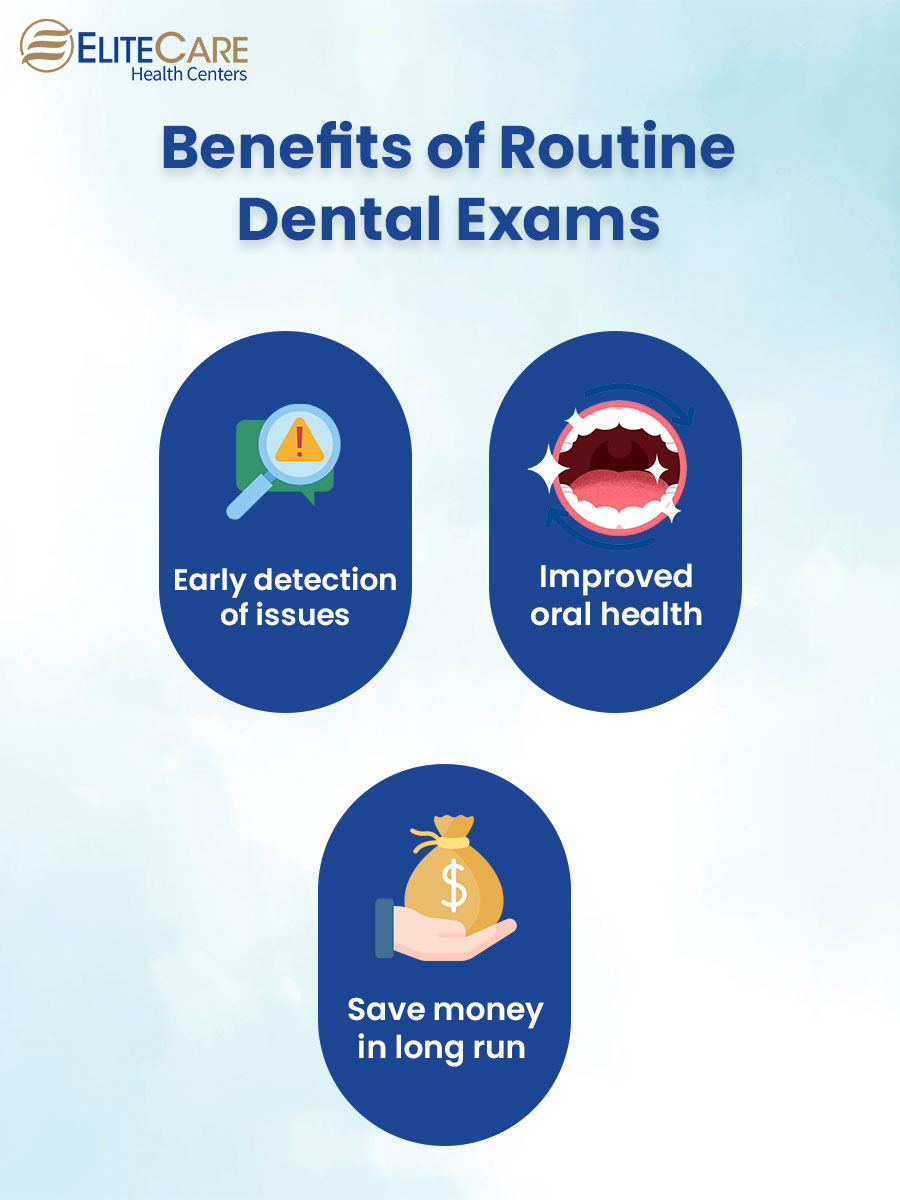
1. Early detection of issues
By receiving regular dental care, it becomes easy to catch and treat oral health problems in their early stages, before they become more serious and more difficult to treat. This can help prevent the need for more extensive treatments down the road.
2. Improved oral health
Regular dental exams can help to maintain the overall oral health of seniors by detecting and treating problems at regular intervals. Since seniors are more prone to tooth decay and oral health hazards, a routine dental exam works as a great preventative measure.
3. Save money in the long run
By receiving regular dental care, seniors can reduce the risk of developing more serious and costly oral health problems. Additionally, maintaining dental health also reduces their risk of developing other health problems that can be expensive to treat.
Conclusion
Regular dental exams are an important part of maintaining optimal oral health. By scheduling routine dental appointments, seniors can detect and prevent oral health problems in their early stages, maintain their overall health and well-being, and protect the appearance and function of their teeth.
To maintain optimal oral health, it is imperative to follow up on the steps recommended by the dentist after each dental exam. These may include maintaining a proper oral hygiene routine at home, such as brushing and flossing daily and following a healthy diet that is low in sugar. For routine dental check-ups, visit the nearest EliteCare Health Centers and schedule an appointment.
*Data provided by Centers for Disease Control and Prevention (CDC)
- Tags:dental check updental checkupdental consultationdental examhealth and wellness centerhealth and wellness serviceshealth care centermedical cliniconline doctor consultationpreventive careprimary careprimary care physicianprimary care servicesprimary servicessenior care serviceswellness care centers
